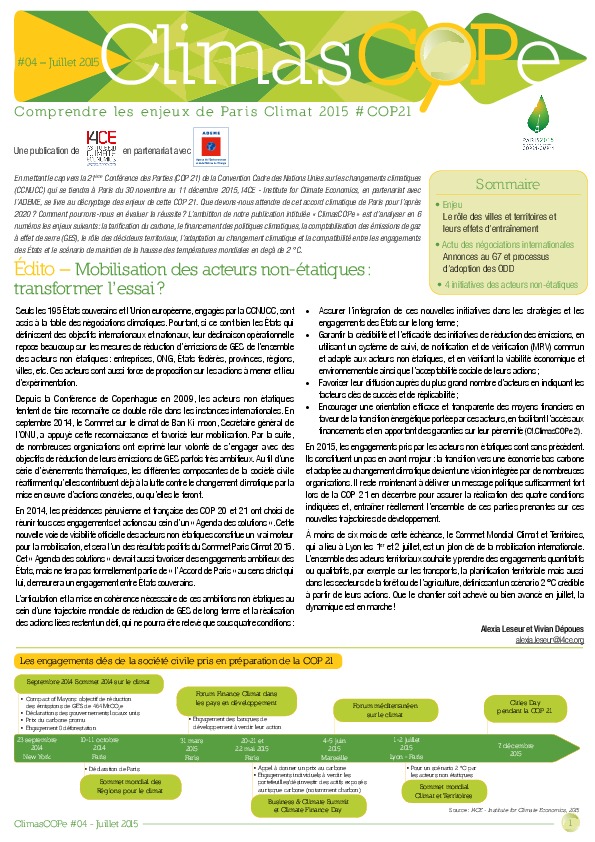On the mobilization of non-state actors for the climate action
Heading towards the 2015 Paris international Climate Conference (COP21), I4CE, in partnership with ADEME, the French Environment and Energy Management Agency, publishes a ClimasCOPe # 4 aiming to shed some light on the challenges of international climate negotiations.
ClimasCOPe # 4 is focused on the challenge of the mobilization of non-state actors in the climate action. After an editorial titled « Non-state actors: the driving force behind the climate action agenda » written by A. Leseur and V. Dépoues, I4CE experts analyze the issue The role of cities and regions and their knock-on effects for GHG emissions reductions, present last steps in international climate negotiations and key initiatives of non-state actors developed in the world.


